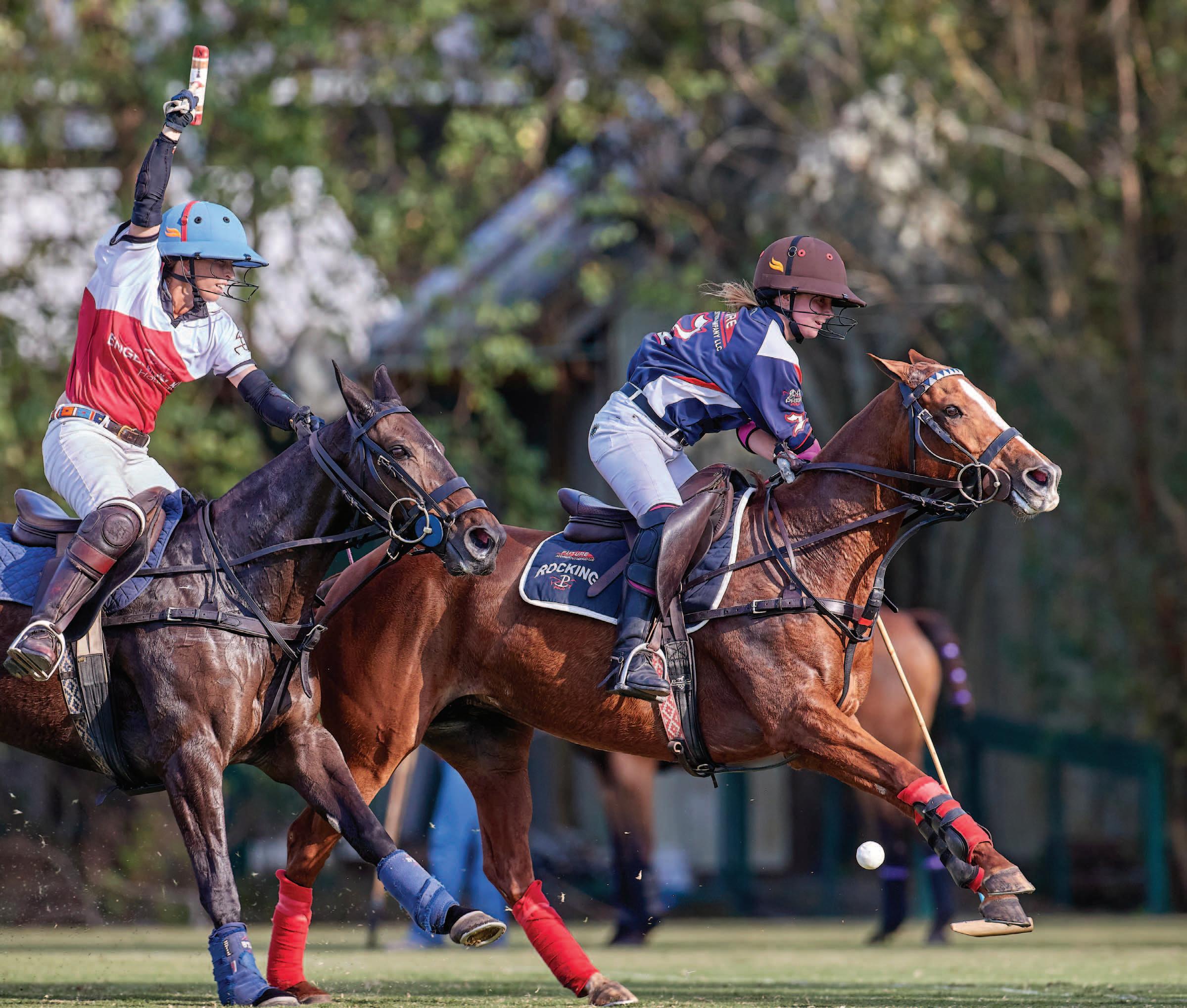Y E S T E RY E A R S
Improvement needed Lack of good ponies worrying polo men Adapted from Bit & Spur, March 1911
Players ambitious to enter important events have to face the serious proposition of obtaining fast, weight-carrying, well-trained mounts. That a player is no better than his pony is most certainly true in regard to polo, especially so in these days when games are played at top speed and only great big 14.3 or 15-hand Thoroughbred or three-quarter-bred ponies are considered good enough for really first-class matches. Men who are ambitious to play in important tournaments in this country have to face the allimportant necessity of obtaining fast, weightcarrying, well-trained ponies. Since polo was first started in 1876, in the states, the solution of this very important problem has been left practically to a handful of dealers who have been fairly successful in providing a good second-class pony. They have been entirely unable to find ponies of international or even first-class quality with the exception of a very few individuals whose prominence in the game was almost entirely due to the player and the thorough schooling these ponies were given after they left the hands of the dealers. If the dealers were only able to find the material it would not be such a serious matter, but the very small percentage of first-class ponies put on the market is very discouraging. However, taking into consideration their want of knowledge of the game, their lack of opportunity to school their ponies in games of any description, and their lack of capital, it is surprising that they are as successful as they have been in the last 10 years. Great Deal of Expense The expense of getting together a bunch of 30 or 40 ponies is very great. In the first place, it means that at least 150 ponies must be purchased originally and after an expensive ‘trying out’ at least two-thirds will be found lacking for one reason or another and not good enough to ship for sale. These undesirable ponies will be sold probably at a loss, in addition to the expense of their keep during the trying-out process. When the dealer has his string of ponies ready to offer to players he has the terrible expense of 62 POLO P L A Y E R S E D I T I O N
keeping them in shape and condition at Eastern rates in most instances. Taking into consideration loss in transit and sick ponies, either eventually unsold or ‘given away’ in an auction, the dealer, with absolutely no exception to my knowledge, makes no more than a hand-to-mouth living out of this branch of the horse business. Polo is necessarily a rich man’s game and a player should not stop at a stiff but fair price for a high-class pony, because they are very few and far between and are the result of months of ‘looking for’ and buying scores of medium-class ponies. Not only should he give the dealer his price for his pony during the season, but he should not neglect to buy a really first-class pony at any time of the year, as these ponies are invaluable to a man who aspires to play in good company and are not always to be picked up when desired. There is in England a Polo and Riding Society formed for the purpose of improving and establishing a breed of ponies suitable for polo. Necessarily this meant many years of perseverance and hard endeavor before results could be seen, but it is generally admitted by polo men in England that it has gone a long way toward improving the standard of ponies fit to play, and that in the last few years there have been quite a number of registered, polo-bred ponies played in the most important games. Two of these ponies represented England in the last International Cup games. England Will Not Sell A similar society might be formed in the states with good results, but it would be many years before much improvement could be noted and would necessitate the importation of polo stallions, a most expensive and most difficult thing to do, as English breeders would be very chary of parting with these extremely profitable and not easily found ponies. It was only possible, it will be admitted, to regain the American Cup by the judicious buying of noted English ponies (by English, of course, I include ponies bred in Ireland), but Mr. Whitney or any one else will find it extremely difficult to purchase the same class of pony in England as long as the cup













